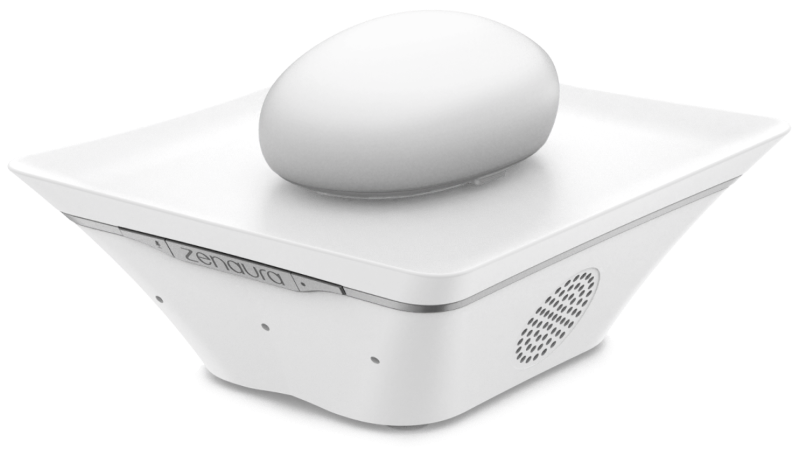Are you stumped on how to focus better? Keeping your focus in a world which is full of distractions, is challenging to say the least.
Improving your ability to concentrate is essential if your goals include enhancing your cognitive abilities, whether those goals are to excel on examinations, meet deadlines, or improve cognitive talents.

What are the best ways to focus?
1. Keep interruptions to a minimum. How can we improve our concentration ability if constantly inundated with data? Create a habit of setting aside time to complete a particular activity. Ask to be left alone or find somewhere quiet where you won’t be interrupted, such as a library, coffee shop, or room. Out of sight, out of mind, and out of mind for social media and other apps. According to a study detailed in Harvard Business Review, people’s ability to think clearly increases when their phones are physically hidden rather than switched off. Keep Your top priority is finishing your work. Focusing better often requires blocking out distractions, both mental and physical.
2. Cut down on multi-tasking. We can’t help but feel accomplished when we’re trying to multi-task. It’s a surefire way to make yourself less productive, focused, and attentive. And decreased output often results in emotional exhaustion. Listening to a podcast while simultaneously replying to emails or making phone calls is an example of multi-tasking. Such multi-tasking reduces your productivity and impairs your capacity to concentrate.
3. Try meditation and mindfulness. Wellness, mental toughness, and concentration can all get a boost from regular meditation and other mindfulness practises. Meditation helps quiet the mind and ease tension throughout the body. We concentrate on breathing throughout the procedure to keep our minds from wandering. It is possible to perform successfully despite interruptions by training ourselves to return our focus to the subject by focusing on our breathing.

4. Get extra shuteye. Numerous external variables can disrupt your sleep. Reading on a computer, phone, or tablet before bed is a frequent practise, as is viewing a favourite show or movie on an LED TV. According to studies, these gadgets tend to produce blue-coloured light. Your retina will be stimulated, keeping your brain from releasing melatonin, which helps you wind down before bed. To reduce exposure to this type of blue light, try wearing “blue light” glasses or a filter when using electronics in the hours leading up to bedtime. Avoiding exertion in the late afternoon or evening, keeping yourself well hydrated all day, utilising journaling or breathing exercises to calm the mind, establishing a regular bedtime and going to bed at the same time every night are all strategies for better sleep.
5. Focus on the present. Even if you’re having a hard time focusing, it’s important to remember that you can direct your attention elsewhere. Thinking about the past or worrying about the future can make it difficult to focus on the task. Try to move on from the past despite how difficult it may be. Recognise the effect, your emotions, and your growth, and then release them. In the same way, if you’re worried about the future, it’s essential to recognise your worries, evaluate how they manifest physically, and then make a conscious decision to release them. We’re here to hone our ability to pay close attention to the here and now. What we give our attention to expands.

6. Take a breather. Another seemingly unexpected finding is that prolonged concentration might lead to a loss of interest in the subject at hand. It would be best if you worked on focusing on the work at hand. According to the literature, constant stimulus causes our brains to tune it out. Taking brief mental breaks by shifting your mind elsewhere can help you return to your work with renewed intensity. If you are stuck when working on a project, it’s time to take a break. Get up, walk around, converse, or switch to something new. You’ll be able to maintain your high level of performance with a clearer head when you return.
7. Get in touch with nature. Having plants in the workplace has been shown to improve air quality, boost employee morale, and increase focus and productivity. Taking a stroll around the park or savouring the beauty of your garden can do wonders for your focus and mood.

8. Exercise your mind. Evidence that brain training exercises can improve adults’ cognitive performance, especially their capacity to focus, is gradually amassing in the scientific literature. Such concentration games can also aid in the improvement of working memory, short-term memory, processing speed, and problem-solving abilities. Jigsaw puzzles, sudoku, chess, and mentally challenging video games are good examples.
9. Break a sweat. Get your body moving first thing in the morning with some light exercise. Regular exercise releases chemicals important for memory, concentration, and mental sharpness, as reported in the May 2013 Harvard Men’s Health Watch issue. Dopamine, norepinephrine, and serotonin are all neurotransmitters that regulate focus and attention, and previous studies have shown that physical activity can increase their levels in the brain. Those who regularly exercise or have sports regimens outperform their physically unfit counterparts on various cognitive tests. Muscle tension and stress are reduced because of regular physical activity. When your physical health improves, your mental health will follow suit due to the tight relationship between the two.
10. Pump up the jams. The healing power of music on the human mind is well documented. If you’re having trouble focusing, some soft music might assist. Music with lyrics or human voices may be distracting. Still, most experts agree that classical music or sounds of nature, such as water running, can help with concentration. Depending on your concentration and productivity demands, you can choose from various apps and services that provide music and soundscapes.

11. Eat well. Eat things that keep your energy and blood sugar stable and nourish your brain. Eating a diet rich in fruits, vegetables, and fibre-rich foods will help maintain healthy blood sugar levels. Get less of the sweet stuff that makes you feel dizzy or sleepy by cutting less on sodas, energy drinks, and fruit juices. To function optimally, your brain needs a healthy supply of fat. You can improve your mental performance by eating more nuts, berries, avocados, and coconut oil. Foods like blueberries include an enzyme that enhances memory and focus by increasing blood and oxygen flow to the brain, which can positively affect cognition for up to five hours after ingestion. Foods high in potassium, like spinach, can improve brain function by speeding up communication between neurons.
12. Establish a daily goal. Make a list of your daily goals the night before, focusing on the one thing you must do. This will allow you to prioritise the tasks that need doing rather than becoming bogged down in the minor details. It can be helpful to break down significant activities into smaller chunks to avoid feeling overwhelmed. Reducing distracting worry through prioritisation can be accomplished by setting and meeting daily goals.

13. Set up a workspace. Make yourself a serene workplace. A well-furnished office is beyond reach for most people. Still, investments in desk storage, noise-cancelling headphones, a movable monitor, and flexible lighting may make a difference. Remove eyesores, optimise the area for efficiency and comfort, and maintain order and ventilation.
14. Utilize a timer. Use a timer or phone alarm to train your brain to focus intently on a single job. The first step is to pick a goal. Focus on the job for 20 (or at most, 30) minutes. When the timer goes off, stop what you’re doing and relax for five minutes. You can take a break, stretch, and start the timer over. Evidence suggests that this method can help you focus better.
15. Alter your focus. Sometimes, no matter how much we want to give 100% to a task, we just can’t, and we must give our minds a break and go on to something else. To break the monotony, try doing something you really enjoy. Taking short breaks and switching between projects might keep you attentive and productive for longer.

















